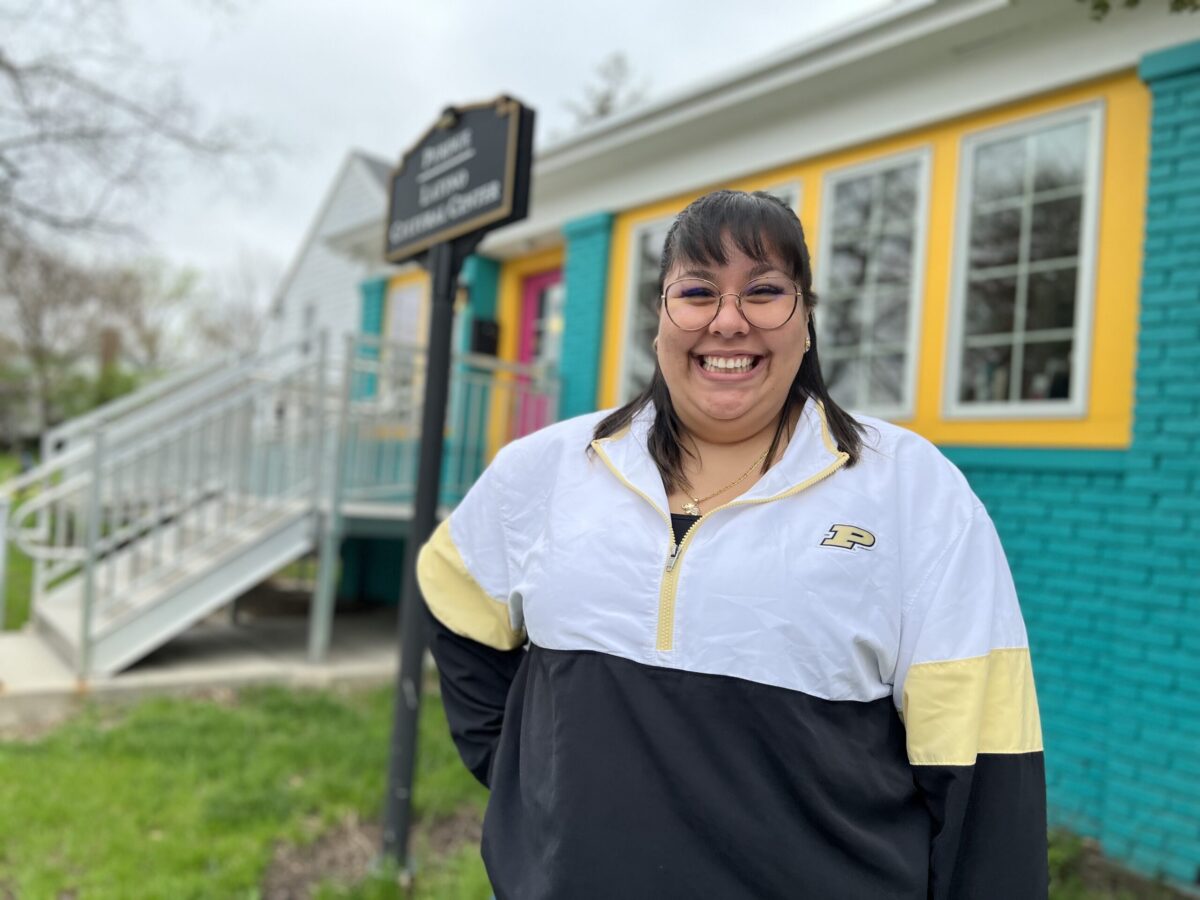Purdue graduate student works to reduce Latinx health disparities through public health program
Written By: Rebecca Hoffa, rhoffa@purdue.edu

Jennifer EscobedoPhoto provided
As an undergraduate majoring in chemistry at Purdue University, Jennifer Escobedo never imaged she would become a dual-degree graduate student, earning a master’s degree and PhD in Purdue’s Department of Public Health within the College of Health and Human Sciences.
Although she loved the lab, after two years of working as a chemist, Escobedo realized it wasn’t what she thought it would be. Ultimately, she dreamed of having a clinic where she could provide resources to improve health outcomes for individuals in the Latinx community. She decided to return to West Lafayette to earn her Master of Public Health (MPH) and pursue her dream.
“What better degree to provide these services than a public health degree?” Escobedo said.
Coming into the MPH program, Escobedo began looking for professors who could offer mentorship and research experience. When she learned more about the work Associate Professor Yumary Ruiz was doing with health and well-being in the Latinx community, she made it a point to introduce herself, which ultimately led to an interview to participate in Ruiz’s lab.
“I just talked about how I wanted to get more involved,” Escobedo said. “I didn’t get to do research in my undergrad (years), and I struggled quite a bit as an undergrad at Purdue. I never thought it was going to be an opportunity, and it was nice that I was able to meet with her and talk to her, and she believed in me.”
Escobedo became involved in Ruiz’s Purdue Puentes Project, a multidisciplinary study looking at factors that affect the mental and physical health of Latinx youth who are part of migrant farm-working, agricultural or rural-based families.
“I’ve learned so much being in the labs already,” Escobedo said. “I’ve learned different things from managing a lab to being a research assistant to helping out with codebook stuff. A class that I’m doing right now could potentially lead to publishing, which is something else I never thought would be a thing, to be able to say ‘Look me up on Google Scholar.’”
Initially, Escobedo was content with just receiving her MPH. However, when she began her role as a graduate assistant in Purdue’s Latino Cultural Center (LCC), she discovered a new passion for mentorship through co-leading the Avanzando Through College program, which helps Latinx first-generation students navigate college.
“It was very nice and fulfilling to be able to interact with undergraduate students who were first-generation or students who were transferring to school who identify as Latinx and to be a support system for them,” Escobedo said. “That was something I wish I would have had when I was an undergrad, as a first-generation student myself. It was nice to be that person for them in a way. It kind of helped me learn that maybe I do want to be a professor.”
Escobedo’s love for teaching and mentorship was deepened by working as an English learner (EL) teaching assistant in the Lafayette School Corporation. She enjoyed seeing the students embrace their community and feel more comfortable speaking their native Spanish, knowing she played a role in their success.
“That’s one of my favorite accomplishments, and I think a part of my little journey to deciding that I would want to be a professor was because of them,” Escobedo said.
After some encouragement from LCC director Carina Olaru as well as Ruiz, Escobedo decided to go for it and pursue her PhD. Because Escobedo still dreams of one day opening her own clinic, she values the flexibility that academia provides, allowing her to conduct research to promote health equity, build up the next generation of public health professionals and potentially open her clinic on the side to support the Latinx community.
Purdue’s Latino Cultural Center has played a significant role in Escobedo’s time as a graduate student, from helping her to build valuable mentorship skills to offering her a community at the University. Because her current fellowship doesn’t allow her to have graduate assistantship at the same time, Escobedo is unable to work as a graduate assistant in the LCC this semester; however, she has continued to be involved through regular visits and attending events. Outside of the LCC, she has also become president of the Latinx Graduate Student Organization (LGSO) this semester.
“It was just another way for me to find community,” Escobedo said. “That’s a big thing for me, having a community and a support system that can get me through my good days just as much as my bad days. That’s why I decided to join the LGSO because, yes, I can have the community here at the LCC, but it’s also nice to have other people who are like me, who understand me and who are going through it just as much as I am.”
Escobedo noted that Hispanic Heritage Month (Sept. 15-Oct. 15) is a particularly exciting month in the Latino Cultural Center, featuring a lineup of speakers and events. Because LCC events are open to families, Escobedo plans to share the experiences with her siblings as well.
“I think for anybody who is outside looking in or is within but doesn’t know where to look, I think the thing is to just become involved,” Escobedo said. “It’s a very welcoming community — we want you to feel comfortable. Just learn as much as you can. Participate as much as you can. It’s a very interesting month to be a part of.”